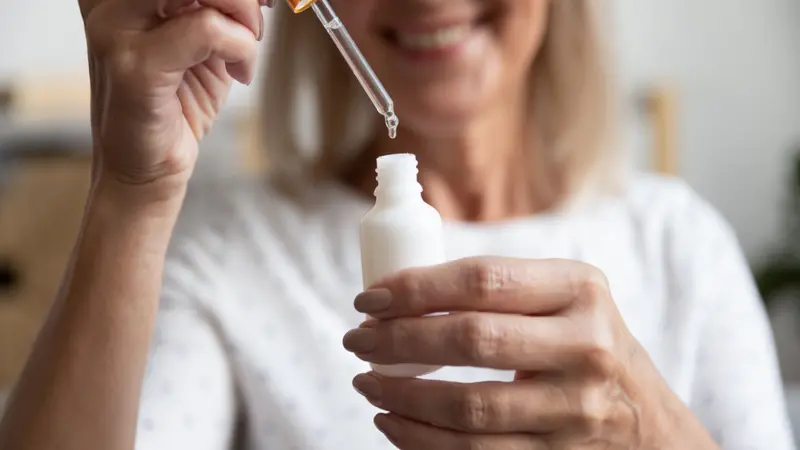

Natural

Natural
Bakuchiol: A Natural Alternative to Retinol?
Many of the anti-aging products on the market may provide temporary improvement in your skin to achieve a youthful glow, but may actually be harmful—or even carcinogenic. Retinol, one of the most popular and widely used wrinkle compounds, has significant risks and side effects.
Could there be a more natural approach to youthful skin that actually works?
Retinol: Benefits & Risks
Retinol, a vitamin A derivative, is the strongest over-the-counter (OTC) retinoid available. It is able to penetrate deeply into the skin due to its small molecular size, which is what makes it so effective at stimulating cell turnover.
Retinol has been shown to:
- Boost collagen
- Minimize wrinkles
- Brighten skin
- Diminish hyperpigmentation
However, retinol also comes with risks and side effects. Known side effects include:
- Redness
- Peeling
- Irritation
- Burning or stinging
- Dryness
- Blistering
- Discoloration
- Increased sun sensitivity
Animal studies have shown that applying retinoids to the skin increases tumor growth upon exposure to synthetic sunlight, which suggests that retinol may have the potential to increase skin cancer risk. It also should not be used during pregnancy, or for those with sensitive or inflamed skin (e.g., eczema).
Bakuchiol: A Natural Alternative
Bakuchiol, an ancient skin care remedy that’s been the subject of recent research, is a powerful plant-based compound that has performed similarly to retinol in clinical studies.
This compound is found in the babchi plant, a medicinal plant and herb that has a long history of use in both Ayurveda and traditional Chinese medicine, and it has antimicrobial, anti-inflammatory, and antioxidant properties.
Similar to retinol, bakuchiol stimulates collagen production in the skin and helps protect existing collagen due to its antioxidant properties. Studies have found that applying a bakuchiol product daily can improve the appearance of fine lines, wrinkles, and other signs of aging, as well as improve skin firmness, and results were noticeable within 12 weeks.
Bakuchiol can also brighten your skin and fade any hyperpigmentation, including dark spots. It can also calm redness and make the skin tone look brighter and more even. After 12 weeks of use, bakuchiol was also found to have anti-aging effects, improving elasticity (the ability of your skin to “bounce back” from damage and being stretched) as well as overall texture.
Retinol vs. Bakuchiol
A 2018 clinical trial that compared bakuchiol and retinol found that both effectively decreased wrinkles and hyperpigmentation, with bakuchiol being better tolerated than retinol with few to no side effects.
Bakuchiol has also not been shown to increase sun sensitivity in any studies, but instead may help protect your skin from UV-induced photodamage and free radicals that can accelerate aging.
Bakuchiol comes directly from a plant, whether you use it in the form of babchi oil or as a compound added to skin care products. Make sure that any product containing babchi oil or bakuchiol also contains other ingredients that are natural and toxin-free, and choose USDA Certified Organic to be sure you’re getting a safe, chemical-free alternative to retinol.
REFERENCES
Vaszily, B. (2022, April 13). Plant-based alternatives to retinol for healthy, younger-looking skin. https://foodrevolution.org/blog/bakuchiol-alternative-to-retinol-skin-care


 By
By







